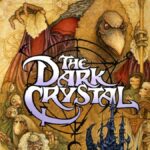In 1896, Cambridge scholar and author M. R. James found English verses within a 12th-century Latin sermon in a Peterhouse Cambridge collection. James and another colleague identified the verses as excerpts of a lost romantic poem, dubbing it The Song of Wade. Little did they know that the discovery would trigger almost 130 years of fierce debate over the meaning of the excerpts—a debate that two modern Cambridge scholars may have finally put to rest.
In a study forthcoming in Oxford University Press, Seb Falk and James Wade (whose last name is a funny coincidence) argue that the English excerpt has been misread for decades. Instead of:
Some are elves and some are adders; some are sprites that dwell by waters: there is no man, but Hildebrand only.
It should be:
Thus they can say, with Wade: ‘Some are wolves and some are adders; some are sea-snakes that dwell by the water. There is no man at all but Hildebrand.
The Song of Wade was a popular story in the Middle Ages whose main character rubbed elbows with the likes of Lancelot and Gawain. Even Geoffrey Chaucer referenced Wade in the late 1300s.
One of the features of The Song of Wade excerpts in the Humiliamini sermon that most confused scholars was the mention of “elves,” which made the poem seem more epic and folktale-ish than chivalric and romantic. This unexpected theme didn’t make much sense in Chaucer’s text, either.
“Changing elves to wolves makes a massive difference. It shifts this legend away from monsters and giants into the human battles of chivalric rivals,” Falk explained in a University of Cambridge statement.
“It wasn’t clear why Chaucer mentioned Wade in the context of courtly intrigue,” Wade (the researcher) added. “Our discovery makes much more sense of this.”
In Chaucer’s Troilus and Criseyde, for example, a character named Pandarus tells Criseyde the “tale of Wade” after dinner. Falk and Wade, who argue that Pandarus wants to evoke Criseyde’s passions, explain that a chivalric romance makes more sense within this context. As for the Humiliamini sermon, this new reading makes it all the more interesting.
“Here we have a late-12th-century sermon deploying a meme from the hit romantic story of the day,” Falk explained. “This is very early evidence of a preacher weaving pop culture into a sermon to keep his audience hooked.” Falk described it as a “creative experiment at a critical moment when preachers were trying to make their sermons more accessible and captivating.” The researchers suggest that the author of the Humiliamini sermon was most likely the English late-medieval writer Alexander Neckam, who lived from 1157 to 1217.
More broadly, the sermon speaks of humility in an unusual fashion, comparing powerful, plundering men to wolves and deceitful people to snakes. According to Wade, it delivers a timeless warning: that humans are a greater threat than monsters.
Read the full article here












